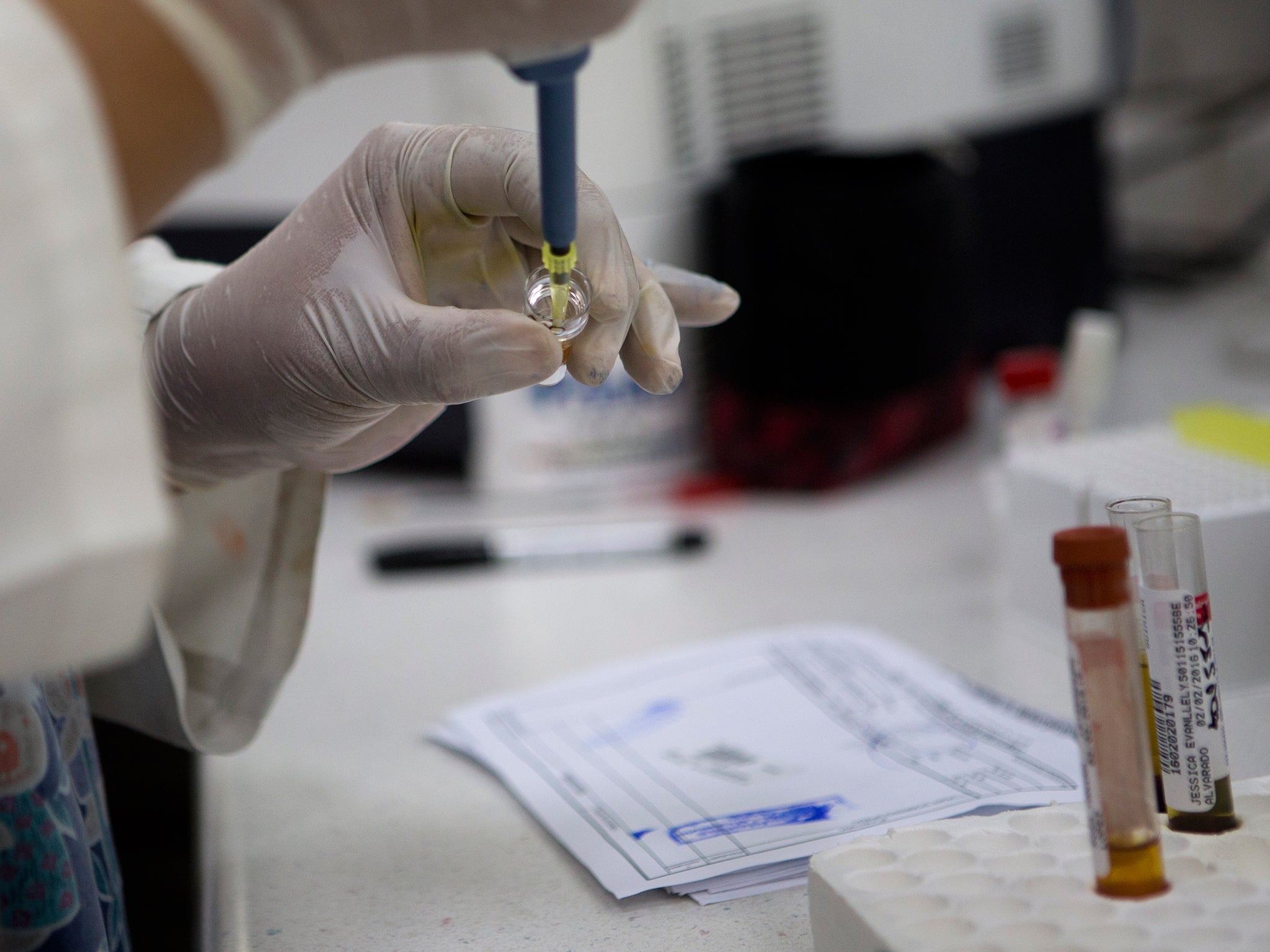The Independent's journalism is supported by our readers. When you purchase through links on our site, we may earn commission.
Zika: Why it's wrong the compare the virus to Ebola
Despite both being declared global public health emergencies by the WHO, they differ considerably

Your support helps us to tell the story
From reproductive rights to climate change to Big Tech, The Independent is on the ground when the story is developing. Whether it's investigating the financials of Elon Musk's pro-Trump PAC or producing our latest documentary, 'The A Word', which shines a light on the American women fighting for reproductive rights, we know how important it is to parse out the facts from the messaging.
At such a critical moment in US history, we need reporters on the ground. Your donation allows us to keep sending journalists to speak to both sides of the story.
The Independent is trusted by Americans across the entire political spectrum. And unlike many other quality news outlets, we choose not to lock Americans out of our reporting and analysis with paywalls. We believe quality journalism should be available to everyone, paid for by those who can afford it.
Your support makes all the difference.A committee of the World Health Organisation has declared the Zika virus a global public health emergency. This designation gives the WHO and member states the ability to recommend limits on travel to prevent the potential spread of disease and to call for emergency measures and resources to combat an outbreak.
The last time the WHO used this mechanism was during the recent Ebola crisis in West Africa. But despite frequent comparisons in the media, Zika differs considerably from Ebola. Ebola caused vomiting, fever and excessive bleeding that warranted the rapid development of treatment centres, safe burial practices and strict infection control protocols. Zika, on the other hand, is usually relatively mild. Only one in five of those infected experiences flu like symptoms, which rarely require hospitalisation.
Although one of the main concerns of Zika is the growing body of evidence that supports a connection to microcephaly, an unusually small head size in newborn babies, a causal link has yet to be established between the two.
However the involvement of WHO committee at this point, when there is still a lot of uncertainty about the disease, may tell us two things: that the WHO is seeking to learn from its failure to Ebola, after it was heavily criticised for its slow response; and that BRIC countries, such as Brazil, may be playing an increasingly important role in global health – their health priorities now have a global audience.
The WHO was widely criticised for its response to Ebola. It admitted that it had been slow to react to the outbreak after it appeared in 2014 and that it failed to understand the wider socio-economic factors which contributed to the pathogen’s spread. As such, the WHO may seek a global response to this outbreak in an effort to show institutional learning from those failures. However, while it is undeniably important for the WHO to demonstrate leadership, it is also vital that those working in public health wait until there is substantial evidence connecting Zika and the associated birth defects before making any comprehensive recommendations.
Zika may also demonstrate the growing importance of BRIC countries (Brazil, Russia, India and China) as players in global health. The epicentre of the outbreak is in Brazil, a state with growing importance geo-politically, a member of the G20 and notably the host of the 2016 Olympics in Rio. One of the criticisms of the response to Ebola was that the global community only took action when the first American and European patients were diagnosed. The fact that the WHO has called for the emergency committee to discuss this outbreak now may suggest more about the growing influence Brazil has on the world stage.
Now that the committee has decided that Zika is a “public health emergency of international concern”, it will need to ensure that proportionate actions are taken. The security response that we witnessed during the Ebola outbreak would not be suitable to halt the spread of this mosquito-borne disease. The focus of any activities should be to provide relevant resources for greater research on Zika and methods of mosquito control, either via traditional methods or exploring recent developments such as genetically modifying mosquitos.
However, one key lesson from the Ebola response can be applied to Zika – that the success of any intervention will depend on community acceptance. Public health teams must work with community organisations from the start to ensure that prevention and treatment methods are accepted by those who are at risk of the disease and that broader societal concerns are addressed to ensure that pregnant women are comfortable with any actions taken to limit the disease’s impact on their unborn children.
Clare Wenham, Fellow, London School of Economics and Political Science
This article was originally published on The Conversation. Read the original article.
Join our commenting forum
Join thought-provoking conversations, follow other Independent readers and see their replies
Comments